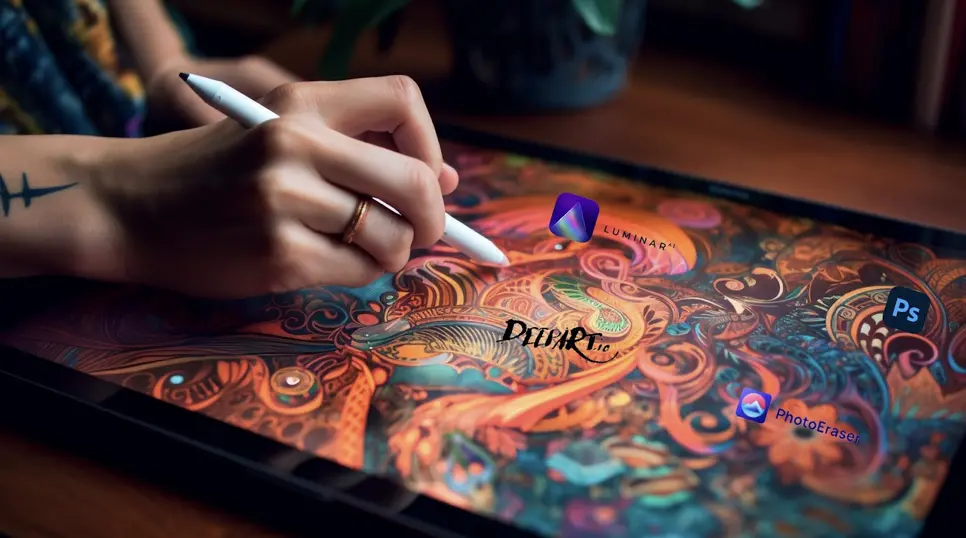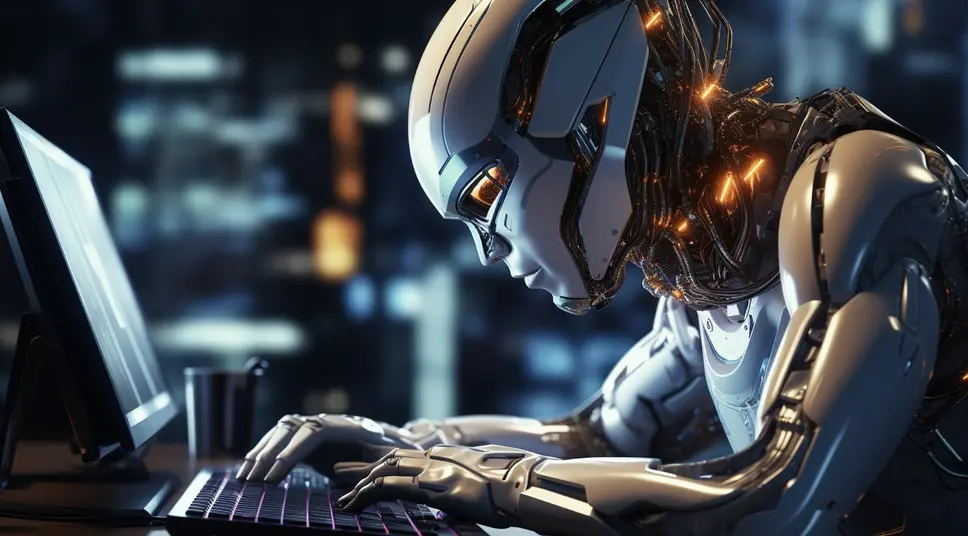Image editing has undergone advancements in decades. Moving from darkrooms and film development to digital software, the tools and techniques have become more accessible and powerful. Now the field stands on the cusp of a transformation, with the integration of intelligence (AI). AI-driven tools are reshaping how we edit images, simplifying tasks, and enhancing speed and efficiency. Here we will explore the future of image editing through an examination of the capabilities and possibilities presented by AI-powered tools, focusing on the innovations introduced by PhotoEraser.
A Glimpse into Image Editing’s History

Tracing the Past
The history of image editing traces back to practices such as darkroom methods, where photographers would manipulate negatives to improve their final prints. The emergence of digital photography in the 20th century brought a notable change, with software like Adobe Photoshop providing robust editing features for personal computers. These tools have evolved over time to be more user-friendly and packed with features that cater to both professionals and enthusiasts.
The Digital Era Revolution
The digital era revolutionized image editing by granting access to anyone with a computer to retouch photos, create compositions, and carry out other edits. During this era, we witnessed the emergence of many software solutions, each with its distinct features and workflows. Despite these advancements, image editing continued to be a process that demanded skill and time.
The Emergence of Artificial Intelligence in Image Editing
What is AI-Powered Image Editing?
AI-powered image editing utilizes machine learning algorithms to analyze and manipulate images. These tools can carry out complex edits automatically, reducing the need for manual intervention. AI has the ability to recognize objects, identify edges, adjust colors, and even create new elements within an image based on patterns learned from extensive datasets.
Advantages of AI-Powered Tools
- Efficiency and Swiftness: AI can complete tasks in seconds that would otherwise take humans hours.
- Accessibility: These tools make advanced editing techniques accessible to individuals without expert skills.
- Consistency: AI ensures a level of uniformity and accuracy that is challenging to achieve manually.
- Possibilities: AI has the potential to inspire new ideas and perspectives, boosting creativity.
AI-Powered Tools in Image Editing

1. PhotoEraser: Revolutionizing Image Editing
PhotoEraser stands out as a leader in AI-powered image editing. Its range of tools harnesses the power of AI to simplify and enhance editing processes. Let’s take a look at some of the standout features that set PhotoEraser apart for both professionals and hobbyists.
AI-Powered Background Removal
Removing backgrounds from photos is a time-consuming task. PhotoEraser simplifies this process with its AI-driven background removal tool, which accurately identifies the subject within an image and seamlessly eliminates the background. This allows users to effortlessly create transparent backgrounds or replace them with new ones.
Sky Replacement
Altering the sky in a photo can significantly change its feel and appearance. PhotoEraser’s AI sky replacement tool automatically recognizes the sky region in an image and swaps it out with a sky selection from a library or uploaded by the user. The tool also adjusts lighting and color tones to ensure seamless integration with the rest of the picture.
Object Removal
Unwanted objects in photographs can detract from the focus. With PhotoEraser’s AI-powered object removal feature, users can easily erase these distractions. The AI intelligently fills in any gaps by analyzing neighboring pixels, preserving the integrity and continuity of the image.
Image Enhancement
AI technology can enhance images by improving clarity, adjusting colors, and refining details. Through machine learning algorithms, PhotoEraser’s enhancement tools identify areas that could be improved and automatically apply enhancements for professional-looking results.
2. Adobe Photoshop: Incorporating AI into Industry Standards
Adobe Photoshop, the go-to software for editing images, has seamlessly integrated AI technology through its Adobe Sensei platform. This sophisticated AI system drives functionalities like subject selection, content-aware fill, and neural filters that enhance tasks such as skin smoothing and style transfer.
Enhanced by Neural Filters
Neural Filters within Photoshop harness the power of deep learning to make adjustments effortlessly. Users can tweak expressions, age appearance, gaze direction, and more with just a few clicks. These filters analyze facial attributes and apply changes while preserving a natural appearance.
Intelligent Content-Aware Fill
Utilizing AI capabilities, Content-Aware Fill in Photoshop excels in removing objects from images. By examining the surrounding context, it fills the void seamlessly, giving the impression that the object was never there. This tool proves invaluable for refining backgrounds and eradicating distractions.
3. Streamlined Creative Editing with Luminar AI
Luminar AI by Skylum aims to democratize editing by providing user-friendly tools powered by AI technology.
Automated Sky Detection with Sky AI
The Sky AI feature in Luminar AI automatically identifies skies in images and offers options for replacement. It also adapts the lighting and color tones of the picture to match the new sky, ensuring a cohesive and realistic outcome.
Portrait Enhancement
The Portrait Enhancement feature focuses on improving portraits by refining skin, eyes, and other facial aspects. It can eliminate imperfections, smoothen skin, and even adjust lighting to complement the subject.
Enhanced Composition
Enhanced Composition assists users in achieving the perfect crop and composition. By analyzing the image, it proposes the best crop based on visual aesthetics principles, enhancing overall balance and appeal.
4. DeepArt: Artistic Transformations through AI
DeepArt is a tool powered by AI that specializes in artistic transformations. Through neural networks, it applies artists’ styles to any image, producing unique and visually striking artworks.
Artistic Style Transfer
The Artistic Style Transfer feature in DeepArt enables users to upload an image and choose an art style from famous artists like Van Gogh, Picasso, or Monet. The AI then transforms the image by blending its content with the selected style.
5. Background Simplification with Remove.bg
Remove.bg is an AI tool for eliminating backgrounds from images. Using advanced algorithms, it detects and isolates subjects while providing a clear, transparent background.
Automated Background Erasing
The AI technology from Remove.bg swiftly eliminates backgrounds from images. Users can easily upload a picture, and the AI swiftly processes it, providing a transparent background that’s perfect for editing or immediate usage.
The Influence of AI on the Future of Editing Images

Making Image Editing Accessible to All
AI-driven tools are opening up advanced image editing to a broader audience. By automating complex tasks, these tools lower the barrier to entry, enabling newcomers to achieve professional-quality outcomes. This democratization is empowering individuals to delve into creative endeavors and visually express themselves.
Boosting Creative Capabilities
AI isn’t just about automation; it also sparks creativity. By offering new tools and features, AI empowers users to explore innovative ideas and techniques. For instance, tools like DeepArt for style transfer allow users to experiment with different artistic styles, while features like sky replacement help photographers reimagine their landscapes.
Streamlining Professional Processes
For professionals, AI-powered tools can greatly streamline workflows. Tasks that used to consume hours can now be completed in minutes, freeing up time for more strategic endeavors. This efficiency is particularly advantageous in fields such as advertising, where rapid turnaround times are crucial.
Enhancing Precision and Uniformity
AI guarantees a level of precision and uniformity that’s difficult to attain manually. For instance, advanced tools powered by AI can accurately isolate subjects, reducing mistakes and inconsistencies. This reliability plays a crucial role in upholding top-notch standards in professional projects.
Exploring Future Possibilities
The potential of AI in the realm of image editing is immense, and we have only just begun exploring its capabilities. Future advancements might involve neural networks capable of comprehending complex scenarios, improved real-time editing features, and even AI with the ability to generate entirely new visual elements from scratch.
Facing Challenges and Considerations
Ethical Dilemmas
As AI integration grows in image editing processes, ethical dilemmas come to the forefront. Concerns like deepfakes, image alterations, and privacy must be tackled to ensure the responsible utilization of AI technology.
Adjustment and Learning
Despite the simplification of tasks by AI tools, users still need a basic grasp of photo editing fundamentals to leverage these tools effectively. Education and training will play a crucial role in aiding users in adapting to these emerging technologies.
Striking a Balance Between Automation and Creativity
While AI can automate many facets of image editing, it remains essential to strike a balance between automation and creativity. Human creativity and intuition are qualities that cannot be replaced; therefore, AI should be viewed as an enhancement tool rather than a replacement for human input.
Conclusion
In conclusion, the future of image editing looks incredibly promising thanks to the advancements in AI-driven tools. These technological breakthroughs are making sophisticated editing techniques more accessible, efficient, and imaginative. From automated background removal to artistic enhancements, AI is revolutionizing how we approach editing images.
Leading platforms like PhotoEraser are spearheading this transformation by providing AI-powered tools that simplify and improve the editing process. As AI technology progresses, we can anticipate groundbreaking developments that will further democratize image editing, streamline professional workflows, and unlock new creative opportunities.
Whether you’re a professional or a novice delving into the realm of image editing, AI-powered tools present exciting prospects to elevate your work and push creative boundaries. The future of image editing is already here, and it’s driven by AI.

